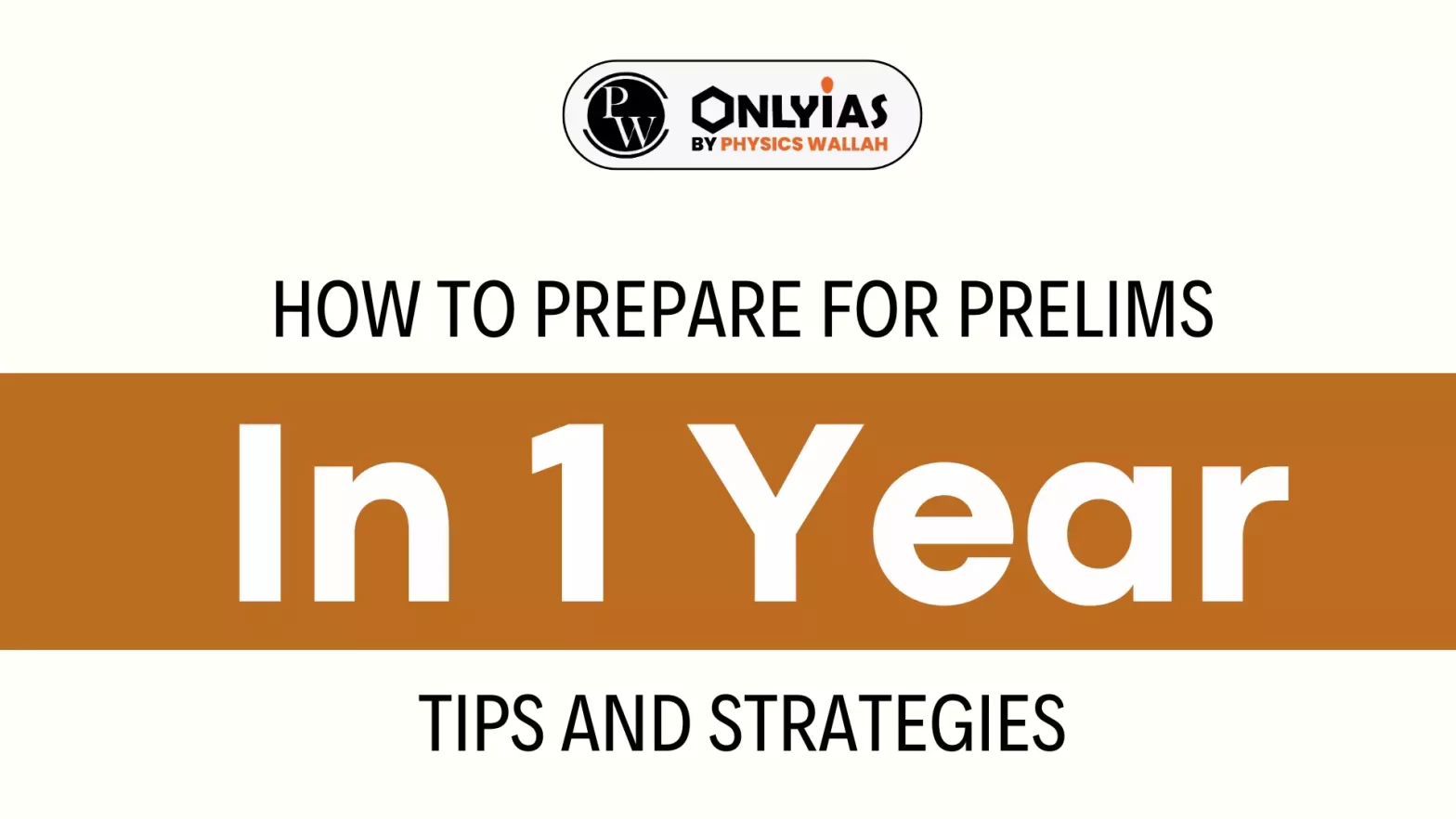Know about a 1-year study plan for UPSC Prelims preparation, including tips and strategies for effective study, time management, practice with mock tests, and revisions.

How to Prepare for Prelims in 1 Year? Developing a 1-year UPSC study plan will enable you to effectively manage your time and study to meet your objectives. In this blog, you will get the complete One-Year Study Plan for the prelims exam.
The Union Public Service Commission (UPSC) administers the Civil Services Examination each year to select eligible applicants for the various Group A and Group B civil services of the Indian government. Developing a well-thought-out study plan for your preliminary exams can help you ace the exam on the first attempt.
To prepare for the UPSC Exam, start with the fundamental NCERT texts in general science, economics, geography, history, and politics. For courses like, History, Geography, Polity, General Science, and Economics, etc. start by studying the foundational NCERT texts.
These books are a great place to start your preparation journey because they offer a thorough summary of important ideas and subjects. Also, allocate some time to cover the CSAT syllabus simultaneously.
This timetable is designed to assist all students. You can modify or create a new timetable based on this information. Our aim is to provide genuine advice and help you succeed in clearing the UPSC Prelims.
Below is the table representing the complete 1-year study plan for UPSC prelims:
One Year UPSC Prelims Study Plan
| Month | Study Plan |
| 1st Month |
|
| 2nd Month |
|
| 3rd Month |
|
| 4th Month |
|
| 5th Month |
|
| 6th Month |
|
| 7th Month |
|
| 8th Month |
|
| 9th Month |
|
| 10th Month |
|
| 11th Month |
|
| 12th Month |
|
The General Studies Paper I (GS 1) and General Studies Paper II (GS 2) of the UPSC Prelims syllabus act as guides for your preparation. Now let’s explore the study plan for the first month with the syllabus details for each paper:
| General Studies Paper-I |
|
| General Studies Paper-II (CSAT) |
|
It is suggested to cover the topics in History and Polity from months 2 to 4. Also, cover the topics of Decision-making and Problem-solving from the CSAT syllabus every day. Let’s delve deeper into the study plan for each subject:
During the months of 5 to 7, you can cover the Geography and Economics syllabus from GS Paper 1 and the Basic Numeracy of Class X level from GS Paper 2:
Students should concentrate on studying Indian Art & Culture and Ecology from GS Paper I during months 8 through 9 of UPSC Prelims preparation. Cover the topics of ecological ideas like biodiversity, climate change, and environmental conservation in addition to Indian art, architecture, and cultural legacy.
Getting ready for the UPSC Prelims requires determination, dedication, and a well-planned study plan. To improve your chances of success, make sure you understand the material, take note of the key concepts, and practice frequently. Keep your focus, your discipline, and your confidence in your abilities. All the best for your Prelims attempt!
Preparing for UPSC Exam 2024-25? Enroll in the PW OnlyIAS Online Course to fulfill your IAS Dream!
| Must Read | |
| NCERT Notes For UPSC | UPSC Daily Current Affairs |
| UPSC Blogs | UPSC Daily Editorials |
| Daily Current Affairs Quiz | Daily Main Answer Writing |
| UPSC Mains Previous Year Papers | UPSC Test Series 2024 |
Make a study plan and start by thoroughly studying the UPSC syllabus. Set aside time for each subject, emphasizing the development of mental clarity and methodically going over the whole curriculum.
For every subject, make use of online resources, NCERT textbooks, and standard reference books. Select trustworthy sources that have been highly recommended by experts and top scorers to ensure thorough coverage of the syllabus.
Make time in your study routine for both static studies and current events. Keep up with current events by reading daily news and periodicals, and concentrate on improving your knowledge of static subjects through repetition and practice.
Considering their relative importance and your level of expertise, divide your time sensibly among several disciplines and themes. Give top-scoring areas priority while making sure other topics are adequately covered. The ability to manage time better will be enhanced by frequent review and practice exams.
Although tutoring has its advantages, self-study has helped a lot of people pass the UPSC Prelims. Consider your advantages and disadvantages when selecting the ideal preparation strategy for you. When studying on your own, make use of study groups, mentorship programs, and internet resources.
<div class="new-fform">
</div>